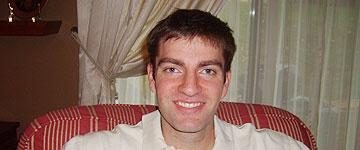Image


Adam Stone is publisher of The Examiner, a weekly Westchester community newspaper he launched in September 2007. Previously, he worked as a freelance reporter. He was published in The New York Times, The Daily News, The Journal News, among many others. In April 2007 he was awarded second-place honors in the New York Press Association’s Writer of the Year contest. He was also awarded a first-place prize, for the second straight year, in sports feature writing. Adam has won press awards for in-depth reporting.
While studying print journalism at Hofstra University, Adam participated in several reporting internship programs, most notably at Newsday, People magazine and Orange County’s Times-Herald Record.